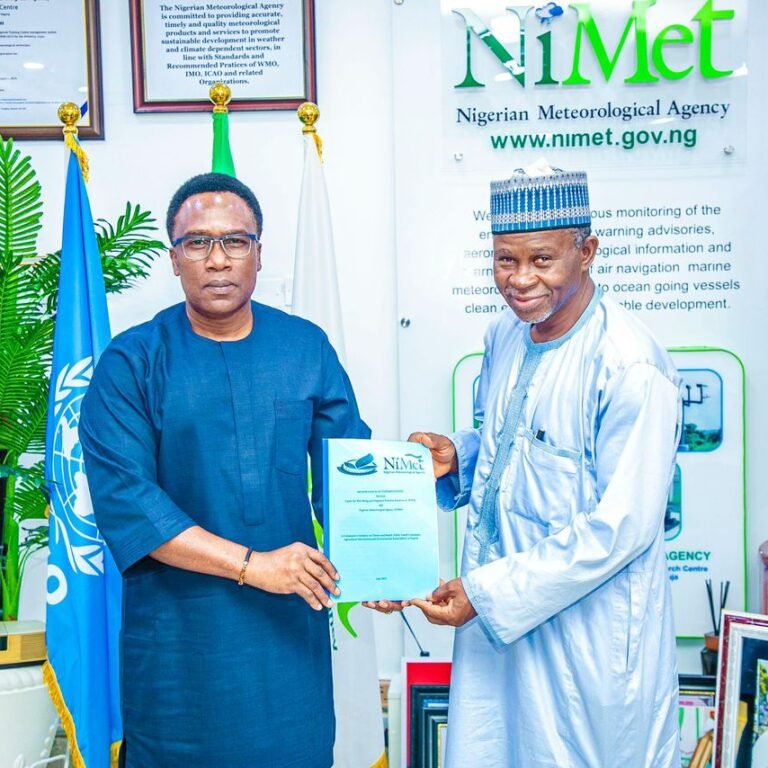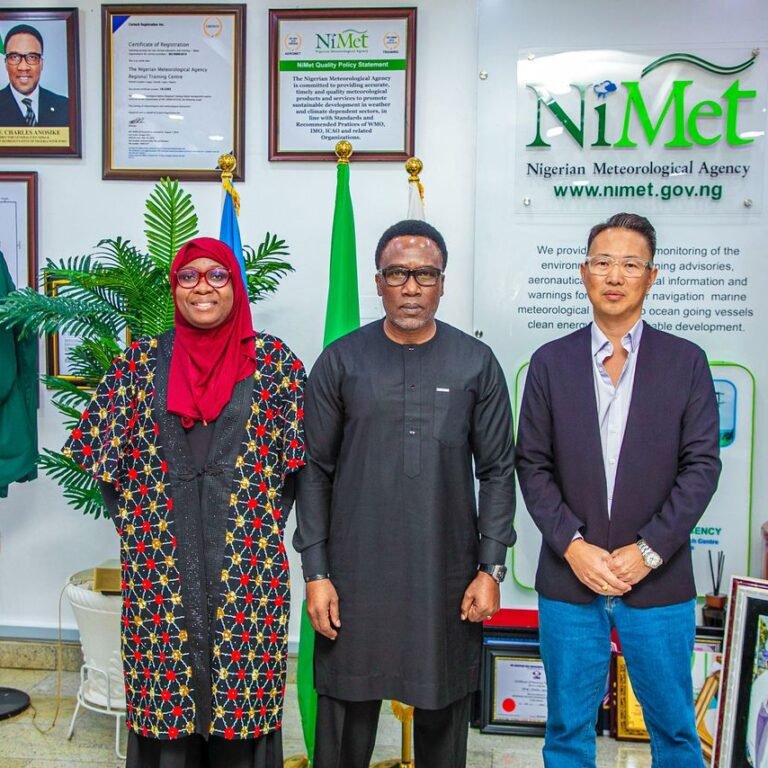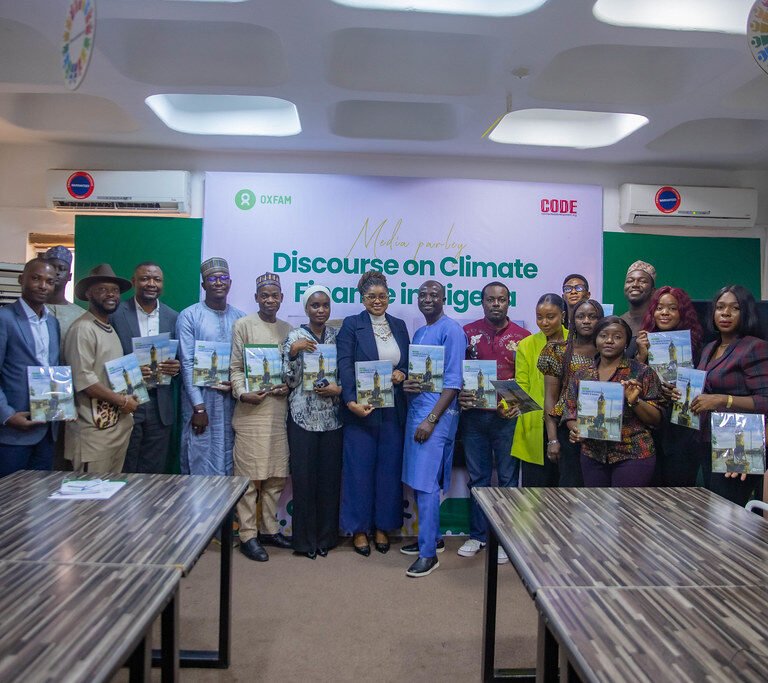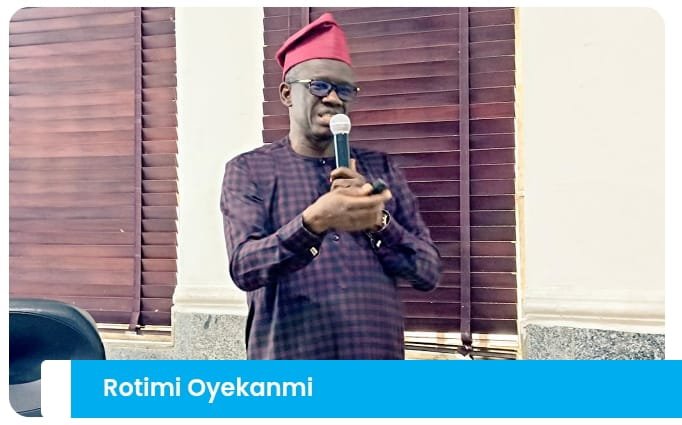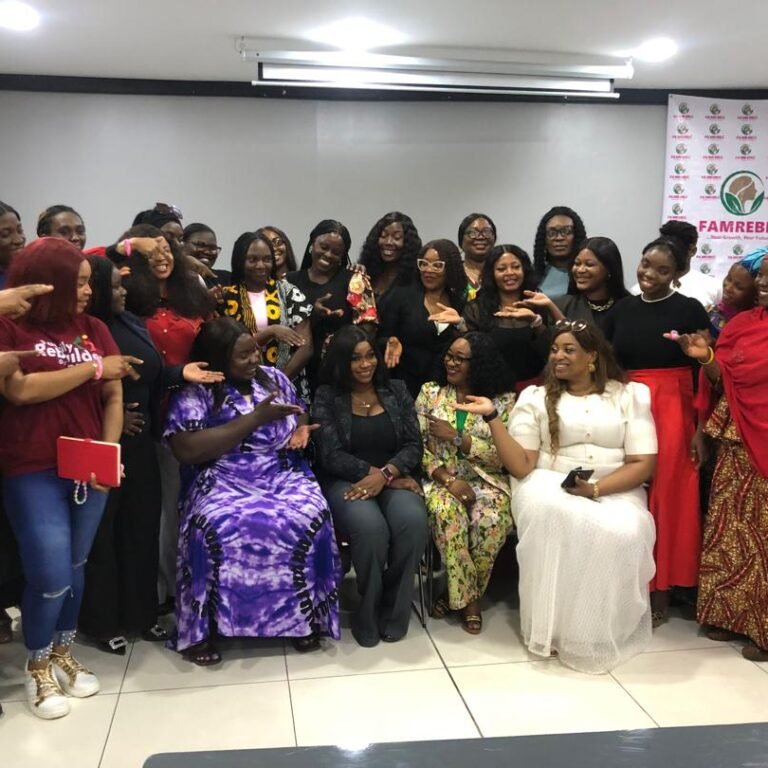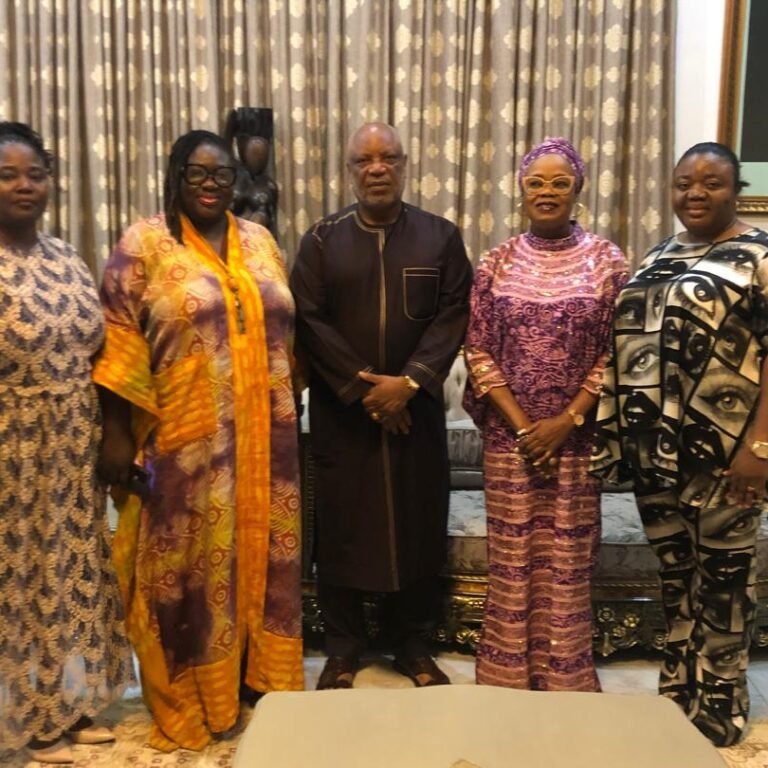
By Ameh Gabriel
The Nigerian Meteorological Agency (NiMet) has reaffirmed its commitment to advancing food and nutrition security in Nigeria through a strengthened partnership with the Permanent Interstate Committee for Drought Control in the Sahel (CILSS).
This assurance was given during a courtesy visit by a CILSS delegation to NiMet Headquarters in Abuja, where both parties discussed enhancing the Food and Nutrition Security Information System (FNSIS) in Nigeria and across the Sahel region.
The Director General and CEO of NiMet, Prof. Charles Anosike, who is also Nigeria’s Permanent Representative with the World Meteorological Organization (WMO), highlighted NiMet’s critical role in early warning systems, disaster risk reduction, and agricultural planning.
Prof. Anosike explained how NiMet collaborates with the Federal Ministry of Agriculture and Food Security to downscale seasonal climate forecasts to the local level, empowering farmers with actionable weather information to boost productivity and climate resilience.
He stressed the importance of a coordinated, science-based approach to predict and respond effectively to food and climate-related shocks. As part of this effort, he introduced the National Framework for Early Warning and Early Action, developed by NiMet with technical support from WMO, as a tool to streamline institutional efforts and strengthen national response mechanisms.
“This framework will be shared with all relevant stakeholders to foster synergy, reduce duplication, and enhance our national capacity to respond to emergencies,” he said.
The visiting CILSS delegation, led by Mr. Williams Massaoud, praised NiMet’s leadership in climate services and reaffirmed the importance of integrating meteorological data into broader food security strategies.
Mr. Massaoud noted that the visit was conducted under the PRISISAN Project (Project for Strengthening and Innovating Food and Nutrition Security Information Systems), which aims to help Sahelian and West African countries develop robust, sustainable systems for managing food crises.
He further explained that the mission includes key partners such as the Food and Agriculture Organization (FAO), World Food Programme (WFP), Federal Ministry of Agriculture and Food Security (FMAFS), Cadre Harmonisé Taskforce, and other development agencies working to combat food and nutrition insecurity in the region.
In his closing remarks, Prof. Anosike emphasized the need for collective action and urged all stakeholders to align efforts towards building a data-driven, integrated food security information system that supports evidence-based decision-making and promotes long-term resilience.


